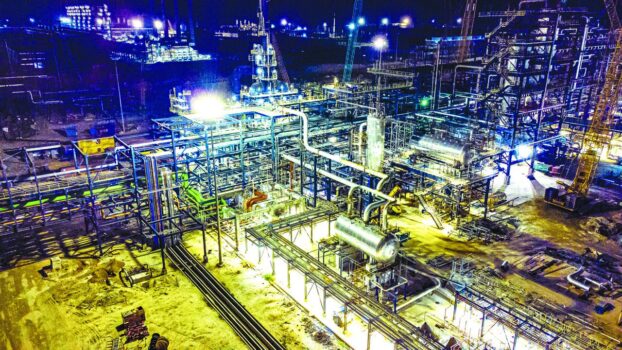 The Vice President of Oil and Gas at Dangote Industries Limited (DIL), Devakumar Edwin, has accused International Oil Companies (IOCs) in Nigeria of actively frustrating the operations of the Dangote Oil Refinery and Petrochemicals. Speaking to Energy Editors at a Dangote Group training program, Edwin claimed that IOCs are making it difficult for the refinery to purchase local crude by setting high premium prices above the market rate, forcing the refinery to import crude from countries as far as the United States, leading to increased costs.
The Vice President of Oil and Gas at Dangote Industries Limited (DIL), Devakumar Edwin, has accused International Oil Companies (IOCs) in Nigeria of actively frustrating the operations of the Dangote Oil Refinery and Petrochemicals. Speaking to Energy Editors at a Dangote Group training program, Edwin claimed that IOCs are making it difficult for the refinery to purchase local crude by setting high premium prices above the market rate, forcing the refinery to import crude from countries as far as the United States, leading to increased costs.
Edwin also criticized the Nigerian Midstream and Downstream Petroleum Regulatory Authority (NMDPRA) for issuing licenses indiscriminately to marketers importing low-quality refined products into Nigeria. He emphasized that despite the Federal Government granting 25 licenses to build refineries, Dangote was the only one to deliver, and therefore deserves full governmental support.
“The Federal Government issued 25 licenses to build refineries, and we are the only one that delivered on promise. We deserve every support from the Government. From the start of production, more than 3.5 billion liters, which represents 90 percent of our production, have been exported. We are calling on the Federal Government and regulators to give us the necessary support to create jobs and prosperity for the nation,” Edwin stated.
He further explained that while the Nigerian Upstream Petroleum Regulatory Commission (NUPRC) is trying to allocate crude to the refinery, IOCs are obstructing these efforts. The IOCs are either demanding unreasonable premiums or claiming that crude is unavailable, forcing the refinery to reduce output and import crude at a higher cost.
“The objective seems to be to ensure our refinery fails. IOCs are deliberately asking for ridiculous premiums or claiming crude is not available. This has forced us to import crude from the US, increasing our production costs. Their goal appears to be to keep Nigeria dependent on imported refined products while they export raw materials, creating employment and wealth for their countries,” he said.
Edwin also highlighted the issue of importing low-quality diesel into Nigeria, despite the refinery’s compliance with ECOWAS regulations and production of clean diesel. He noted that many European countries have banned the export of high-sulfur diesel to West Africa due to its carcinogenic effects, yet Nigeria continues to issue import licenses for such products.
He called on the Federal Government and the National Assembly to urgently intervene and ensure the speedy implementation of the Petroleum Industry Act (PIA) to protect Nigeria’s interests. He cited Ghana’s recent legislation banning the importation of highly contaminated diesel and petrol as a model to follow.
Edwin concluded by appealing for greater support to ensure the refinery can continue to operate efficiently and contribute to the Nigerian economy. He noted that the refinery meets international standards and has been able to export its products to Europe and other parts of the world due to its compliance with stringent guidelines and regulations.

Supreme Court Invalidates National Lottery Act, Restricts Enforcement To FCT
House Of Reps Rejects Six-Year Single Term Bill For President, Governors
Senate Approves ₦1.77 Trillion Loan Request By President Tinubu
Finland Arrests Pro-Biafran Agitator Simon Ekpa On Terror Charges